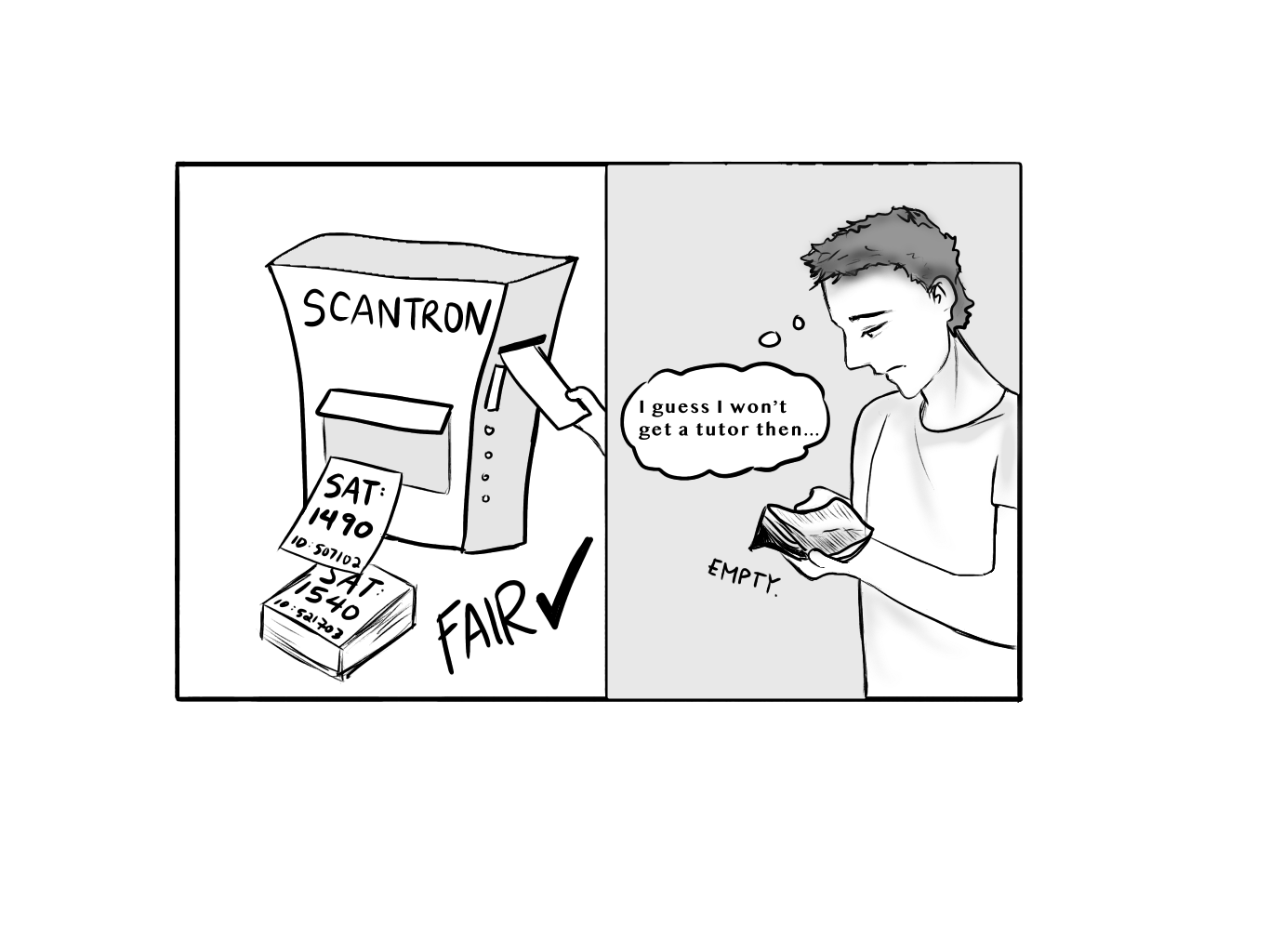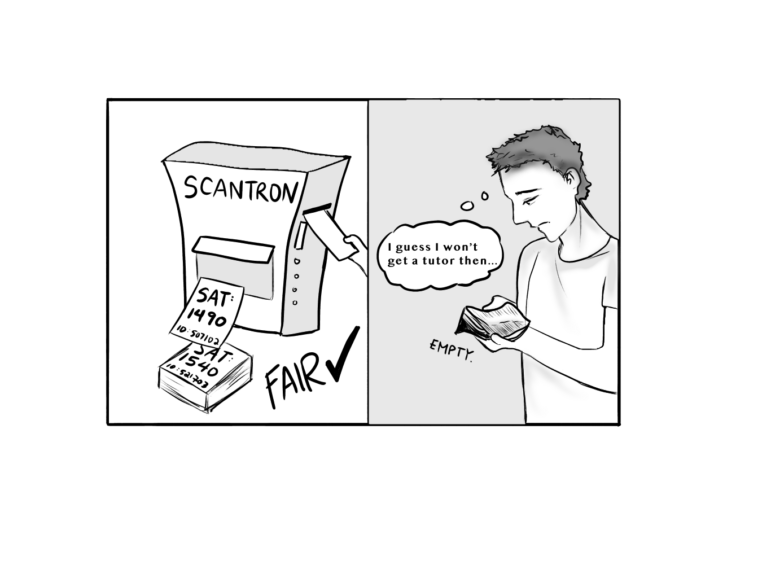
Yes: Standardized testing matters — Vedant Gaur
Standardized testing has shaped and influenced both my future and me as a student. I didn’t know it then, but taking those tests opened paths for my career which I wouldn’t have even thought about.
Most people dislike standardized tests, and it’s not surprising. Who really enjoys sitting in a room for hours filling out bubbles? At the surface level, standardized testing may seem to hold no real value, but not only are they an effective method of gauging the knowledge from classes, they also allow for a much more objective and efficient way of test-taking.
Tests such as the SAT are the same for all those who take it, both in the test content itself and the testing environment, meaning that it allows for an accurate gauging of students’ knowledge.
GPA doesn’t accurately reflect a student’s capabilities. An ‘A’ for one person is almost always different for an ‘A’ that another may have. On the contrary to this partial method of measuring, standardized tests are scanned and graded by machines. For example, while scoring an English essay the teacher’s grade is always subjective as writing style differs.
Another benefit that comes with state testing is the ability to compare and differentiate a student’s level of understanding from their school, district, state, etc. This ability to compare also allows parents to determine which school or district they should send their children to based on the school’s scoring. Due to the widespread use of standardized testing, it is much more convenient to determine how an individual or school is doing.
The test scores that a school produces are vital in the sense that they give information to districts and states about the school. If a school is doing subpar, the only way the board of education can be aware of this is through test scores. This helps put students’ education first, benefiting not only the school and its rating but the students as well.
The argument that those of lower income cannot prepare for these tests is completely untrue. The College Board offers a few different options to study for their tests, providing practice tests for the SAT and other exams, and Khan Academy offers nine, full sample tests, as well as preparation for the test in which an individual’s strengths and weaknesses are determined for free.
I have tried some of these programs out, and can honestly say that they provide a great help towards understanding and preparing for these tests. By having sample tests that are nearly identical to those of the real tests, it allows for a student to effectively gauge at what both the test and testing experience will be like when actually taking the test.
With a growing number of these preparation resources, standardized tests have grown increasingly unbiased to varying income levels. The basic SAT itself only costs around $50 dollars, and fee waivers are available, based on need, by inquiring with counselors or the College Board.
No: Standardized testing does not matter — Peyton De Winter
Standardized testing in its current form is unfair towards the financially challenged, who cannot afford expensive tutors to prepare them for the difficult SAT and ACT assessments. Especially now, when test scores, are looked upon almost exclusively to get into some colleges.
The GPA system is a fairer way to judge whether a student should be accepted into a university. That is not to say that SAT and ACT scores shouldn’t be taken into account at all, but for modern standards, they should be used far less. Chief issues with standardized testing are the large costs of fees and prep, generally accepted as necessary to get a good score.
Despite the College Board making recent attempts to bring the SAT back into relevance, it still falls short of breaking the barrier between students of different financial situations. Many lower-income students cannot afford to pay for SAT tutoring that can cost up to $100 an hour. Higher income students can afford this luxury, which gives them an unfair advantage that over other students. A study ran in 2010 by Ohio State concluded that private test prep courses can add 30 points to your SAT score, and a private tutor, 37.
“[The SAT] still falls short of breaking the barrier between students of different financial situations“
The College Board holds an incredibly large monopoly over most of the education system, including tests and class materials. The supposed “non-profit” forces parents to pay enormous prices just for their children to get good scores on a test, so they can get into a good college where the family gets to pay more money. The College Board makes it so many families may have to take money from what they’ve set aside for college tuition, and spend it on preparing for the SAT instead of college itself.
On the other hand, GPA takes a more expansive look at a student’s high school experience, showing improvement, and how a student may have grown throughout their final years of school. It is also weighted based on higher-level classes, which can help to show a higher level of dedication to learning and responsibility. While some may comment on how GPA may be biased by if the teacher likes you more than others, and so on, this is balanced by the fact that some classes are far more difficult than others. If one teacher is slightly biased, but you take an AP course with an unbiased teacher, that would definitely help make it more unbiased as well be more impressive to get a good grade.
AP tests could also be a good, impartial way to look at student’s capabilities, although very biased towards students who take more AP courses. While this could maybe be a system used instead of GPA or the SATs, it would have to be reworked to be less biased towards students taking more AP courses as well.






